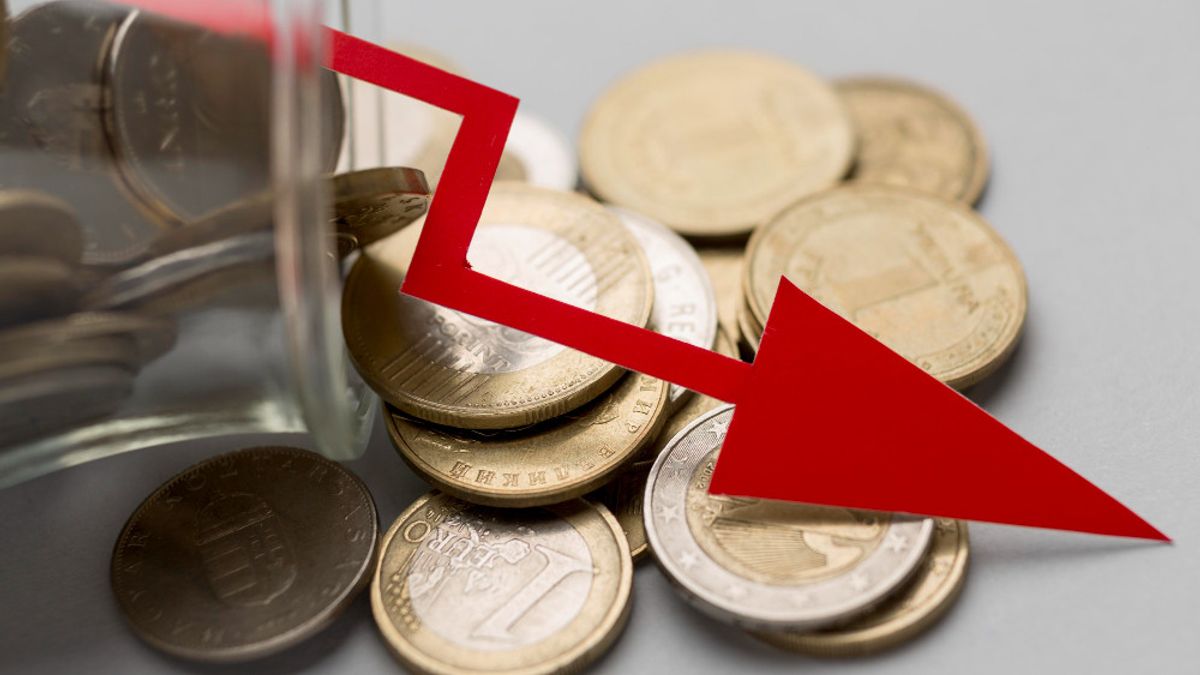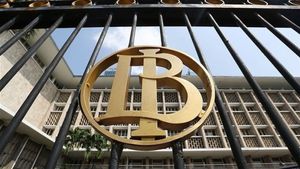YOGYAKARTA - Indonesia is experiencing deflation in 4 consecutive months from May 2024. A fairly worrying economic condition needs to be watched out for by everyone. Many have asked what the differences in inflation and deflation are.
Both inflation and deflation are the main indicators in measuring the economic conditions of an area, region, or country. The deflation rate can be used as a reference to measure economic growth or downturn at a time.
Deflation is an increase in the value of the currency made to restore decreasing purchasing power. Meanwhile, inflation is a decrease in the value of the currency caused by several factors. Let's understand further the differences in inflation and deflation as well as the causes.
It is very important to know the differences in inflation and deflation in order to understand the current economic conditions and steps to deal with them. These two economic phenomena are related to changes in the price rate of goods and services in an area and within a certain period of time.
The following are differences in inflation and deflation that need to be understood as economic insight:
Inflation is an increase in the price of goods and services in general in an economy during a certain period of time. Inflation is often due to high demand that is greater than the increase in the availability of goods and services in the economy.
When inflation occurs, the purchasing power of money decreases. So with the same amount of money, we can buy less goods or services than before.
Inflation is usually measured through the consumer price index (IHK) or producer price index (IHP) which shows changes in the prices of goods and services over time. Controlled and moderate inflation is considered healthy for the economy because it reflects stable economic growth.
However, inflation that is too high or hyperinflation can cause economic instability. This economic condition can result in a decrease in the value of the deposited money, people's purchasing power has decreased, to declining living standards.
Deflation is the opposite of inflation, namely the condition where prices of goods and services have decreased in general in an economy. Deflation can occur when demand for goods and services decreases significantly, causing a decrease in prices.
Although initially deflation may seem profitable for consumers, prolonged deflation could cause serious problems for the economy. Trends in prices that can cause companies to suffer losses, forcing them to reduce production, lay off employees, or go bankrupt.
SEE ALSO:
Deflation can encourage consumers to delay purchases in the hope that prices will continue to decline in the future. As a result, this can exacerbate the economic decline due to reduced consumer spending and investment from companies. Another bad impact of this condition is that the unemployment rate increases, people's income decreases, and economic activity is hampered.
The causes of inflation and deflation are also significantly different. Inflation is usually caused by an increase in demand for goods and services that exceeds supply (demand-pull inflation), or an increase in production costs (cost-push inflation). In addition, a loose monetary policy and an increase in the amount of money in circulation can also trigger inflation.
Meanwhile, deflation is often caused by a decrease in aggregate demand in the economy. This condition can occur due to various factors, such as decreased consumption, economic uncertainty, or financial crisis. Deflation can also be caused by strict monetary policy, when circulation decreases significantly, thereby reducing prices.
Those are the differences in inflation and deflation that must be understood to find out the condition of the economy and the steps to deal with it. Also read the types of inflation based on the cause.
Stay up to date with the latest domestic and other overseas news on VOI. We present the latest and updated information nationally and internationally.
The English, Chinese, Japanese, Arabic, and French versions are automatically generated by the AI. So there may still be inaccuracies in translating, please always see Indonesian as our main language. (system supported by DigitalSiber.id)
















